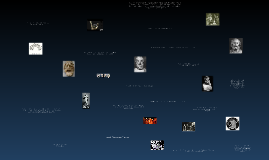Greek Gods Background Project
Transcript: Greek Religion Briseida Godinez 2nd Period Honors English Mrs. Perez Zeus Zeus is the god of the sky and the chief deity, sole ruler, protector of all the gods of Olympus, in addition to humankind as well. Zeus was wise and kindhearted through his rule. However, he is known for uncontrollable fury and known to trick female humans to infidelity behind his wife Hera's back. Gods His daughter Athena More Gods More Gods Other gods in this religion include Poseidon, ruler of the sea, Hades, lord of the underworld, Hera, goddess of marriage and families, Demeter, goddess of agriculture, Ares, god of war, Aphrodite, goddess of love and beauty, Athena, goddess of wisdom and war Beliefs Greek religion was filed under polytheistic, meaning that is was a fact that there were multiple gods and goddesses. Offering were believed to appease the gods in a way that blessed and kept one safe. Beliefs Beliefs Ancient Greeks were in the belief that the gods and goddess were in total control of everything around them and enacted as guides to a sustainable life. For instance, the god Apollo was seen a healing deity and one of music. According to Britannica website, "...the god who made men aware of their own guilt and purified them of it; who presided over religious law and the constitutions of cities; and who communicated with mortals through prophets and oracles his knowledge of the future and the will of his father, Zeus" Beliefs circulating Apollo made him to be a warm, foretelling deity, but a force to be reckoned with if displeased. Beliefs Pictures Customs People worked to erect temples, buildings, and statues to honor the beings of their daily life. Daily bathing rituals to begin one's day were also a must. For religious special occasions, sacrificial offerings were also presented to the gods to seek their protection, guidance, and help. Customs Ancient Olympics Ancient Olympics The olympics we know today actually originated from Ancient Greece! The were created as a means of a religious festival to honor the almighty Zeus. According to History.com, "Legend has it that Heracles (the Roman Hercules), son of Zeus and the mortal woman Alcmene, founded the Games, which by the end of the 6th century B.C had become the most famous of all Greek sporting festivals. " Hercules was said to be the founder pf the games, taking place every four years between August 6th and September 19. Tales Tales Greek religious tales ranged far and wide, some including legendary Greek heroes such as Hercules, Jason and the Argonauts, and Perseus, monster slayer and eliminator of Medusa. One tale featuring our pal Perseus is the tale of him and how he met Andromeda, his wife. Others were used as cautionary tales, such as Pandora's box, a tale of how human curiosity may bring ruin. Pandora Perseus and Andromeda In the kingdom of Ethiopia, King Cepheus and Queen Cassiope always bragged that their daughter, Andromeda, was even more beautiful than Poseidon's Nereids, female nymphs of the sea. So, as revenge, Poseidon issued a sea monster to ravage King Cepheus's kingdom. With only the sacrifice of Andromeda herself appeasing the gods, she was chained to a rock in the sea and left to be the monster's snack. Perseus, flying by on his winged horse Pegasus, was captivated by Andromeda and fell in love. He then asked the King for her hand in marriage. He agreed, and Perseus slayed the monster. At the wedding feast however, Phineus, the suitor first in line for Andromeda's hand in marriage attempted to affirm his marriage to her before Perseus turned him and his followers to stone. Perseus and Andromeda Sources I Used Britannica, The Editors of Encyclopaedia. "Perseus". Encyclopedia Britannica, 8 Feb. 2021, https://www.britannica.com/topic/Perseus-Greek-mythology. Accessed 31 January 2022. Britannica, The Editors of Encyclopaedia. "Andromeda". Encyclopedia Britannica, 2 Nov. 2021, https://www.britannica.com/topic/Andromeda-Greek-mythology. Accessed 31 January 2022. dev, S. U.-. (2019, December 19). 30 of the most famous tales from Greek mythology. 30 of the Most Famous Tales from Greek Mythology. Retrieved January 31, 2022, from https://greektraveltellers.com/blog/30-of-the-most-famous-tales-from-greek-mythology Britannica, The Editors of Encyclopaedia. "Apollo". Encyclopedia Britannica, 30 Oct. 2020, https://www.britannica.com/topic/Apollo-Greek-mythology. Accessed 1 February 2022. Britannica, The Editors of Encyclopaedia. "Iliad". Encyclopedia Britannica, 11 Jun. 2021, https://www.britannica.com/topic/Iliad-epic-poem-by-Homer. Accessed 1 February 2022. https://www.britannica.com/event/Trojan-War Sources The Iliad The Iliad The Iliad is a epic poem written by Homer fixating on what falls at the hands of the greek hero Achilles, set during the time of the Trojan War. According to Britannica, "The Trojan War victory filled them with a sense of pride to be descended from the great Greek heroes such as Achilles. Today the Iliad gives insight into the horrors and

















